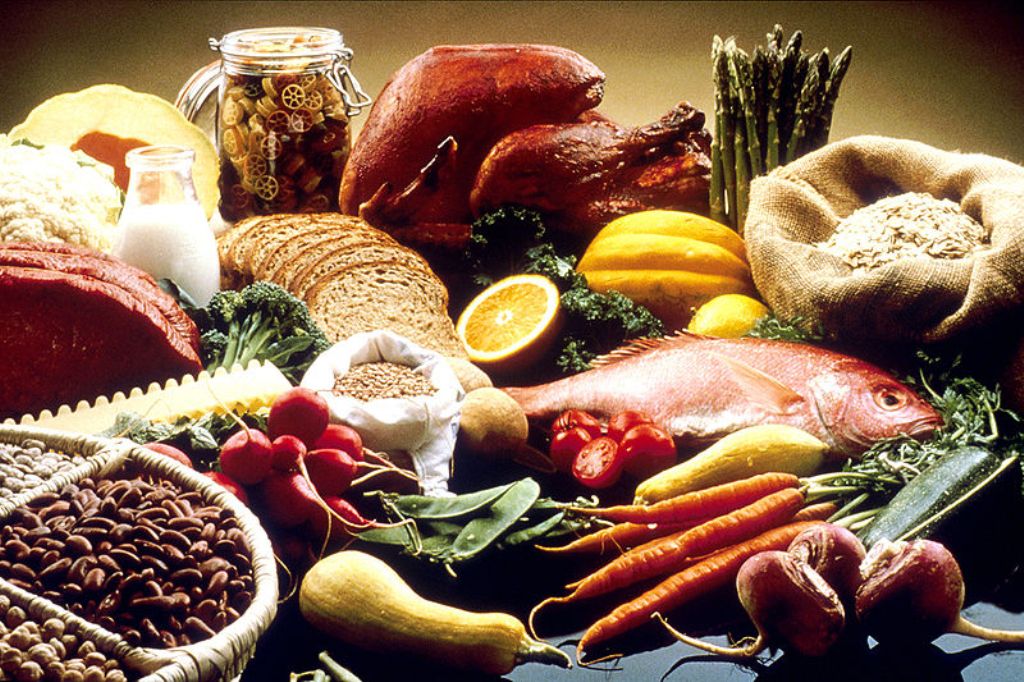
What Is The Paleo Diet?
There are many benefits to incorporating the Paleo Diet into your life. Improved blood lipids, weight loss, and reduced pain from autoimmunity is proof enough. The paleo diet is all about eating foods straight from the Earth just as our ancestors did. They didn’t have livestock or crops to call their own back then.
The Paleo diet is believed to be one of the healthiest ways you can eat due to its nutritional approach. The Paleo Diet works with your genetics to help you stay lean, strong and energetic! Research in biology, biochemistry, Ophthalmology, Dermatology and many other disciplines points to our modern diet as the root of degenerative diseases such as obesity, cancer, diabetes, heart disease, Parkinson’s, Alzheimer’s, depression and infertility. The Paleo Diet excludes all of the refined foods, trans fats, and sugar that serves as the start to such diseases.
Paleo Menu
The paleo diet brings us back to the time of hunters and gatherers in which our ancestors ate: fruits, vegetables, meats, seafood, and nuts. “By following these nutritional guidelines, we put our diet more in line with the evolutionary pressures that shaped our current genetics, which in turn positively influences health and well being,” says Loren Cordain, PhD, professor of health and exercise science at Colorado State University and author of The Paleo Diet. He claims that the diet lessens the body’s glycemic load, has a healthy ratio of saturated-to-unsaturated fatty acids, increases vitamin and nutrient consumption, and contains an optimal balance of protein, fat, and carbohydrates.
LEAN PROTEINS
Lean proteins help in building muscles, healthy bones, and supporting optimal immune function.
FRUITS AND VEGETABLES
Fruits and vegetables are a great source of antioxidants, vitamins, and minerals; which have been shown to decrease the likelihood of developing a number of degenerative diseases including cancer, diabetes and neurological decline.
HEALTHY FATS FROM NUTS, SEEDS, AVOCADOS, OLIVE OIL, FISH OIL AND GRASS-FED MEAT
Scientific research and studies prove that diets rich in Monounsaturated and Omega-3 fats dramatically reduce the chances of developing obesity, cancer, diabetes, heart disease and cognitive decline.
| The Paleo Diet Menu | Off the Paleo Diet Menu |
|---|---|
| Fruits | Dairy |
| Vegetables | Grains |
| Lean Meats | Processed Food & Sugars |
| Seafood | Legumes |
| Nuts & Seeds | Starches |
| Healthy Fats | Alcohol |
With a very simple change in diet, we not only remove the foods that are at odds with our health (processed foods, starches, and dairy) but we also increase our intake of vitamins, minerals, and antioxidants.
Does it reduce risk of diabetes?
A great question to ask is “Does the Paleo diet work?” In a head to head comparison between the Paleo diet and Mediterranean diet, The Paleo diet reversed the signs and symptoms of insulin resistance among type 2 Diabetics. One small study published in the journal Diabetologia found that the diet improved blood sugar over 12 weeks compared to a Mediterranean one which allows grains, low-fat dairy, and oils, but it’s hard to say whether researchers would come to the same results in a larger study. The Mediterranean diet showed little if any improvements. The Mediterranean diet is usually held up by our society as “the diet to emulate” despite better alternatives.
Cardiovascular Disease
According to the CDC, cardiovascular disease is the number one cause of death in the United States. Interestingly however, our Paleolithic ancestors barely suffered from any heart attacks or strokes while eating ancestral diets.
Autoimmunity
Autoimmunity is a process in which our bodies own immune system attacks “us.” Normally the immune system protects us from bacterial, viral, and parasitic infections. The immune system identifies a foreign invader, attacks it, and ideally clears the infection.
It is interesting to know that all of these seemingly unrelated diseases share a common cause: damage to the intestinal lining which allows large, undigested food particles to make their way into the body. This is called “leaky gut and the autoimmune response”. If you have an autoimmune disease you might consider trying the paleo diet for treatment.
Paleo is a healthy lifestyle
“The paleo diet should not be a temporary diet. It’s meant to be a lifestyle, just as it was thousands of years ago. You don’t just stop it when you start feeling better or reach your weight goals. The longer you stay on a paleo diet will help in sustaining your ideal weight; Especially if you are trying to keep the pounds from coming back.
More to Paleo
Exercise is a vital part of living by our genetic code. Surviving in the Stone Age meant a constant on-the-go lifestyle that probably required 4,000-plus calories a day, according to David L. Katz, MD, director of the Yale University Prevention Research Center. Food is the source that fuels our exercise and the Paleo provides an intake of good calories after hitting the gym. The principle of using food as fuel to exercise still stands.
Improve health by cutting out processed foods
The benefits of cutting packaged foods from your diet could be huge. According to the Harvard School of Public Health, three quarters of the average American’s sodium intake (which is almost double what it should be!) comes from commercially prepared foods. A Public Health Nutrition study found that people who prepare home cooked meals at least five times a week are 47% more likely to be alive 10 years later opposed to those who rely more on processed foods.
You can eat too much protein
Experts estimate that our ancestors consumed a one-to-one ratio of calories from meats to produce. Since you have to eat a lot of salad to consume the same amount of calories in a steak, the paleo diet should ideally include mostly fruits and vegetables. Many people don’t realize that and eat too much meat. Studies suggest consuming excess protein and not enough carbs can cause kidney damage and also increase your risk of osteoporosis. Since most of today’s meats are higher in saturated fat than those of yesteryear, it can increase the risk of heart disease.
Many of paleo’s banned foods are good for you
Nutrients in legumes, whole grains, and dairy—all of which are forbidden on the paleo diet—can help to lower the risk of osteoporosis and cardiovascular disease, reduce blood pressure, and promote a healthy weight. Cutting dairy, the primary source of calcium and vitamin D in modern diets, is especially worrisome for women who want to avoid osteoporosis.
Before partaking in any diet or lifestyle, research and learn as much as you can before going down any particular path. It is healthy, but if you do it without completely knowing the healthy ratio of foods consumed within the Paleo Diet, it can end up not being as progressive to your health as you may want it to be. Click Here If you are interested in a 30 day guide to a Paleo Diet.

I’ve heard that the Paleo diet is super healthy but I read this article because I wasn’t really sure what it was and wanted to get the gist of it. After reading this it sounds pretty much like my normal meal plan so I’m patting myself on the back:) I’m wondering though how this is different than the so called “Mediterrean Diet” which is also supposed to be really healthy.
The Mediterranean eating pattern is also healthy as you mentioned. It divides foods into ones that you should eat at every meal, foods that you should eat every day, and foods that you should eat weekly. It emphasizes fruits, vegetables, whole grains, olives/olive oil, nuts, and seeds. It encourages limiting starchy vegetables, red meat, and processed meat. White meat, fish, and legumes fall in the middle, with approximately two servings per week of each recommended. The paleo diet is a bit more restrictive as it cuts out dairy and whole grains which should also be included into a healthy diet.
Hi there,
Really good information on the Paleo diet and it is really so true, if you can eat food in its most naturalist form it is the best for you. But for myself and probably many others, it really is hard to change years and years of habits. I know I have too for better health however I don’t think the Paleo diet is for me – perhaps a little extreme. But I do hope over time I can adopt some of these really healthy options as they will definitely help my health in the long run!
The Mediterranean Diet is another healthy way of eating. It is important to choose whats best for you and stick to a plan that would promote better health. I know it can be difficult to change years of bad habits, but when you feel better you have the energy to perform certain tasks and overall enjoy life more .